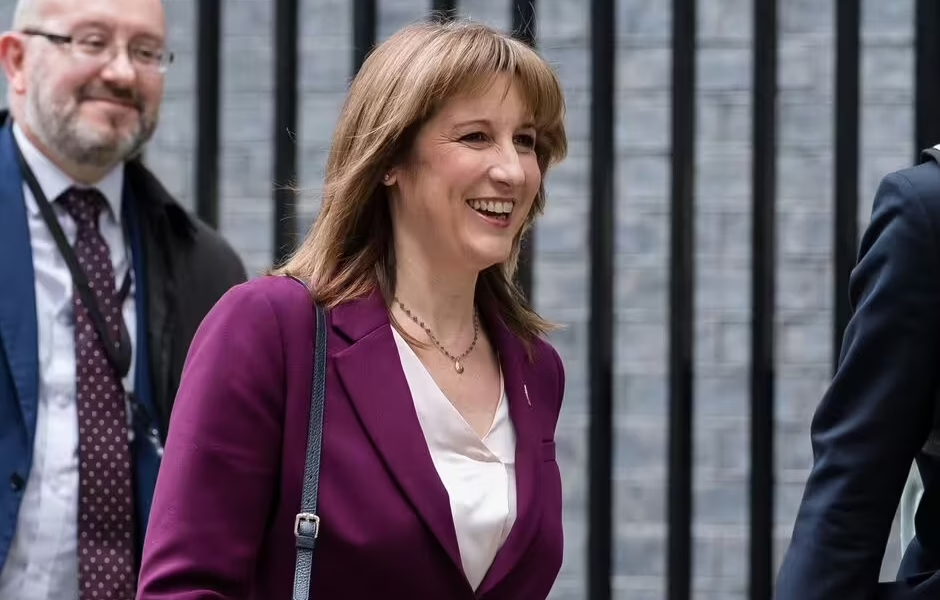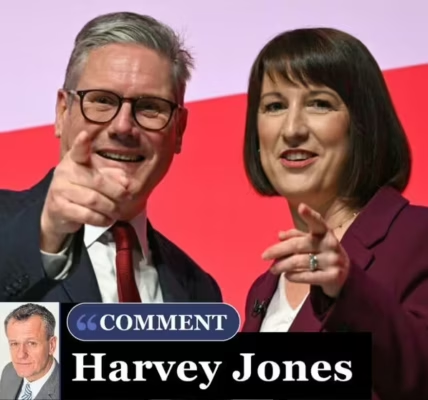
Rachel Reeves refused to address the speculation (Image: Getty)
When journalists received an invitation to Rachel Reeves’s speech on the economy on Tuesday, it was implied that the Chancellor would finally be putting an end to tax speculation. In embargoed comments from her pending speech, we were told Ms Reeves would acknowledge: “You will all have heard a lot of speculation about the choices I will make.
“I understand that – these are important choices that will shape our economy for years to come. But it is important that people understand the circumstances we are facing, the principles guiding my choices – and why I believe they will be the right choices for the country.” But sitting through her address at No 9 Downing Street on Tuesday, Ms Reeves failed to offer any clarity on whose taxes will be going up in three weeks’ time – and by how much.

Ms Reeves repeatedly reeled off the same evasive answers (Image: Getty)
By my count, the Chancellor was asked eight different times about her plans to raise taxes, and each time she dodged the questions.
While Ms Reeves and her advisers set the event up as an opportunity to end the speculation about tax rises. Instead, her evasiveness has only served to put the Westminster rumour mill into overdrive.
I have compiled a hand list of each question Ms Reeves received on taxes, and her less-than-clear answers:
Sky News: “You made history in your last Budget when you increased taxes by £40billion – you said at the time it was a once-in-a-parliament tax-raising Budget, and you told me explicitly Labour would stick to our manifesto commitment not to increase taxes that working people pay. Today, do you still stand by both those promises? And if you can’t, or if you won’t aren’t you making a mockery of voters that put their trust in you at the General Election?
Ms Reeves: “I will set out the individual policies at the Budget on November 26, that’s not what today is about.”
ITV: “You’ve just made the case for raising taxes by tens of billions of pounds. HMRC stats don’t lie – if you do that ,you will have to put up taxes for millions of people, including those you call working people, won’t you?”
Ms Reeves: “Today is not about individual choices, they will be set out in the usual way at the Budget.”
BBC: “I’ve got your manifesto here from last year, and on page 21 it says explicitly that Labour “will not increase taxes on working people, which is why we will not increase National Insurance, the basic, higher or additional rates of income, or VAT”. What do you say to those who have listened to you this morning, and yes they’ll wait for your choices in a few weeks’ time, but will say ‘crikey, it looks like the Chancellor’s about to drive a coach and horses through either that promise or the promise from a year ago not to come back for more’?”
Ms Reeves: “I will set out the specific policy choices on November 26, and that’s the right thing to do, and we’re going through that process, the iterative process with the OBR at the moment with the forecasts and different policy measures.”
The Telegraph: “It’s pretty clear you’re keeping open the possibility of breaking your manifesto. As you say, you want to do what’s right but not what’s popular … Often, governments that have broken manifesto pledges have been turfed out. Are you willing to lose the next election if it puts the public finances right?”
Ms Reeves: “Well, we’ve got to do the right thing. The problem of the last 14 years is political expediency always came above the national interest, and that’s why we’re in the mess we’re in today … I’m determined to put our country on a more sustainable footing.”
The Guardian: “How important is it to you that when politicians make promises to the British people that they stick to them?”
Ms Reeves: “I think it is important that people are honest, and as I said, I think everyone can see this year has thrown many more challenges our way. It would be possible to cut capital spending, to change the fiscal rules, to make the numbers superficially add up, but I’m not convinced that would be the right thing for our country. So I have to respond to the world as it is, not the world I might want to be. I believe in the end the public will respond better to doing the right thing than just doing the expedient thing.”
Online financial influencer: “If taxes are to rise in the Budget, how can you ensure that they will be well spent and that taxes may come back down if the economy recovers?
Ms Reeves: “The point you make about what we might be able to do in the future, the whole point of the decisions I plan to make in the Budget on November 26 is to make decisions in the future easier than the decisions that confront us today.”
Financial Times: “You’ve talked a lot about protecting the interests of working people. What reassurances can you give to some of the people who employ working people – foreign investors, entrepreneurs, the wealthy – that your Budget won’t make their life harder and lead to an even more sluggish growth rate?”
Ms Reeves: “Let’s not talk our economic performance down … We’ll seek to get that balance right in the Budget next month.”
The i: “Is it fair to put up income tax when you can’t get the welfare bill down?”
Reeves: “All decisions have consequences, if you spend money on one thing you have less money to spend on something else, I’ve always been really clear on that. There’s never been a magic money tree for any type of spending, and decisions to spend in one area will have consequences for other areas as well.|
Make up your own minds about why Ms Reeves was refusing to answer, and why the financial markets went into meltdown after her speech.




